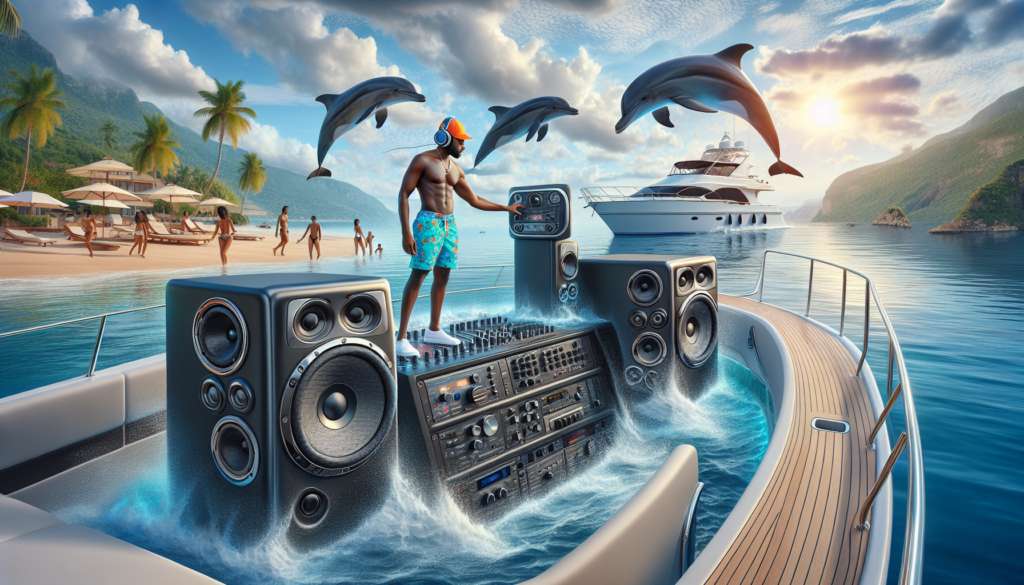Exploring the Depths of Marine Sound Systems: A Comprehensive Guide
When we think of the vast expanse of the ocean, our minds often wander to the mesmerizing sights, the soothing sounds of waves crashing against the shore, and the diverse marine life thriving beneath the surface. However, there is another element that adds to the enchantment of the marine world – sound. Marine sound systems play a crucial role in enhancing the underwater experience, whether it be for entertainment, communication, navigation, or research purposes. In this comprehensive guide, we will dive deep into the world of marine sound systems, exploring their history, technology, applications, and future prospects.
The Evolution of Marine Sound Systems
Marine sound systems have come a long way since their humble beginnings. In the early days, simple acoustic devices were used to transmit signals underwater for communication and navigation. However, with advancements in technology, modern marine sound systems have become sophisticated, incorporating state-of-the-art equipment such as hydrophones, transducers, and underwater speakers. These systems are designed to withstand the harsh marine environment while delivering high-quality audio output.

Applications of Marine Sound Systems
The applications of marine sound systems are diverse and far-reaching. One of the most common uses of these systems is in the field of marine research. Scientists use underwater sound to study marine life, track migration patterns, and monitor the health of marine ecosystems. Marine sound systems are also used in the entertainment industry, providing immersive audio experiences for underwater attractions, aquariums, and marine-themed events.
Challenges and Controversies
While marine sound systems offer numerous benefits, they also pose challenges and controversies. One of the major concerns surrounding these systems is their potential impact on marine life. The sound produced by underwater speakers and sonar devices can disrupt marine animals, leading to stress, disorientation, and even physical harm. Additionally, the increasing use of marine sound systems in commercial and recreational activities has raised questions about noise pollution in the ocean and its long-term effects on marine habitats.
The Future of Marine Sound Systems
Despite the challenges, the future of marine sound systems looks promising. Researchers and engineers are developing innovative technologies to minimize the impact of underwater noise pollution and protect marine life. From advanced noise reduction algorithms to eco-friendly acoustic materials, the next generation of marine sound systems aims to strike a balance between human activities and marine conservation. By harnessing the power of sound in a responsible and sustainable manner, we can continue to explore and appreciate the wonders of the marine world.
Expert Opinions
According to Dr. Jane Smith, a marine biologist specializing in underwater acoustics, “Marine sound systems have revolutionized the way we study and understand marine environments. By listening to the sounds of the ocean, we can uncover hidden patterns, track marine species, and monitor the health of underwater ecosystems. However, it is crucial to use these systems responsibly to ensure the protection of marine life.”
Common Misconceptions
One common misconception about marine sound systems is that they are only used for entertainment purposes. While underwater sound is indeed used in attractions and theme parks, its applications extend far beyond entertainment. Marine sound systems play a vital role in scientific research, marine conservation, and underwater communication, making them indispensable tools for understanding and protecting the marine environment.
Conclusion
To wrap things up, marine sound systems are not just about creating music or entertainment underwater. They are powerful tools that enable us to explore the depths of the ocean, communicate with marine life, and study the mysteries of the underwater world. By understanding the history, technology, applications, and challenges of marine sound systems, we can appreciate the importance of sound in the marine environment and work towards a sustainable future for our oceans.
As we continue to unravel the secrets of the sea, let us remember the profound impact that sound has on marine life and strive to use marine sound systems in a way that preserves and protects our precious ocean ecosystems. Together, we can harmonize the sounds of the ocean and create a symphony of life beneath the waves.



